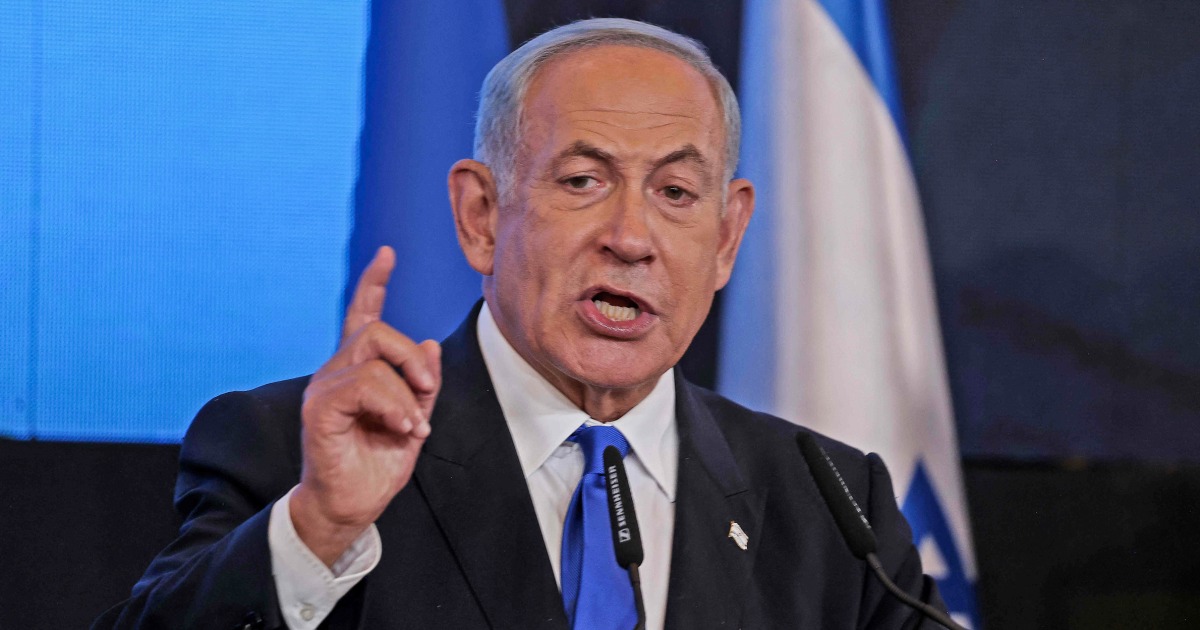TEL AVIV — Bibi is back.
On Thursday with nearly all the votes counted, Israeli Prime Minister Yair Lapid conceded defeat to Former Prime Minister Benjamin Netanyahu.
“The State of Israel comes before any political consideration,” Lapid said, according to a statement. “I wish Netanyahu success, for the sake of the people of Israel and the State of Israel.”
Now the man who has dominated Israeli politics for more than a decade looks certain to have made a dramatic return to power with the help of far-right parties that surged into the mainstream after the country’s latest election.
Netanyahu and his allies have won enough seats to form a majority government in Israel’s parliament. The result will not just secure Netanyahu’s comeback but underscore the country’s rightward shift, posing a headache for the United States and further sidelining hopes for peace with the Palestinians.
There are still weeks of coalition negotiations ahead — which could yield a late surprise — but as the dust settled on Israel’s fifth election in less than four years, Netanyahu, who is standing trial was corruption charges, looked set to return to the prime minister’s office.
“We have received a huge vote of confidence and we are on the verge of a very big victory,” Netanyahu told his cheering supporters during an early morning speech at a victory rally in Jerusalem on Tuesday.
The 73-year-old is the country’s longest-serving leader, having been in office for a total of 15 years in two separate stints. But the government he appears likely to form would be the most right-wing in Israeli history.
Far-right parties that were once on the fringes have now won more than 10% of the seats in Israel’s parliament — and are also likely to secure Cabinet seats.
Among them is Jewish Power, the ideological descendant of an extremist group that was once placed on the U.S. terrorist watchlist. Its leader, Itamar Ben Gvir, was convicted in 2007 of supporting a terrorist group and inciting racism when he held anti-Arab signs at a protest.
“I’ll work for all of Israel, even those who hate me,” Ben Gvir told his supporters.
Ben Gvir said throughout the campaign that one of his top priorities in government would be loosening the rules of engagement for Israeli troops, making it easier for them to use lethal force against Palestinians who attack them with stones or firebombs.
2022 is already on course to be the bloodiest year for Palestinians in the occupied West Bank and east Jerusalem since 2005, according to the United Nations. Around 125 Palestinians have been killed by Israeli fire already this year. Some were shot while carrying out attacks against Israelis, others were killed during protests or other situations.
Around 25 Israelis and foreigners have been killed in Palestinian attacks this year.
The Biden administration has said it’s prepared to work with an Israeli government of any configuration.
Tom Nides, the U.S. ambassador to Israel, said in a statement Wednesday that he was “pleased to see such strong voter turnout.” He added that he looked forward to “continuing to work with the Israeli government on our shared interests and values.”
But the far-right’s election success poses a potential diplomatic challenge to the White House. U.S. officials may have to decide whether to meet with Israeli ministers who have a long history of extremism.
The Biden administration’s official position is that it supports a two-tate solution to the Israeli-Palestinian conflict, with an independent Palestinian state alongside a secure Israel.
However, the administration has devoted little diplomatic energy to the issue, focusing instead on the war in Ukraine, climate change and tensions with China.
There have been no substantial Israeli-Palestinian peace talks in years, and Palestinian officials have said that is unlikely to change under a new right-wing government.
“We had no illusions that Israeli elections would produce a partner for peace,” Mohammed Shtayyeh, the prime minister of the Palestinian Authority, said in a statement Tuesday.
Netanyahu’s victory marks the end of one of the most unusual governments in Israel’s history. A coalition of parties from the left, right and center united last summer to drive Netanyahu from power, leaving Netanyahu to stand trial on corruption charges he denies and bringing an Arab party into Israel’s ruling coalition for the first time.
On the campaign trail, Ben Gvir and other far-right leaders often raised the Arab party’s presence to motivate their supporters.
Lapid will remain in office until coalition talks are completed. His centrist Yesh Atid party came second in the election behind Netanyahu’s Likud.
The election delivered a decisive defeat for Israel’s left. The Labor Party, which dominated Israeli politics during the country’s first decades, appeared to have won only four seats in this week’s contest.
Share your story or advertise with us: Whatsapp: +2347068606071 Email: info@newspotng.com

















